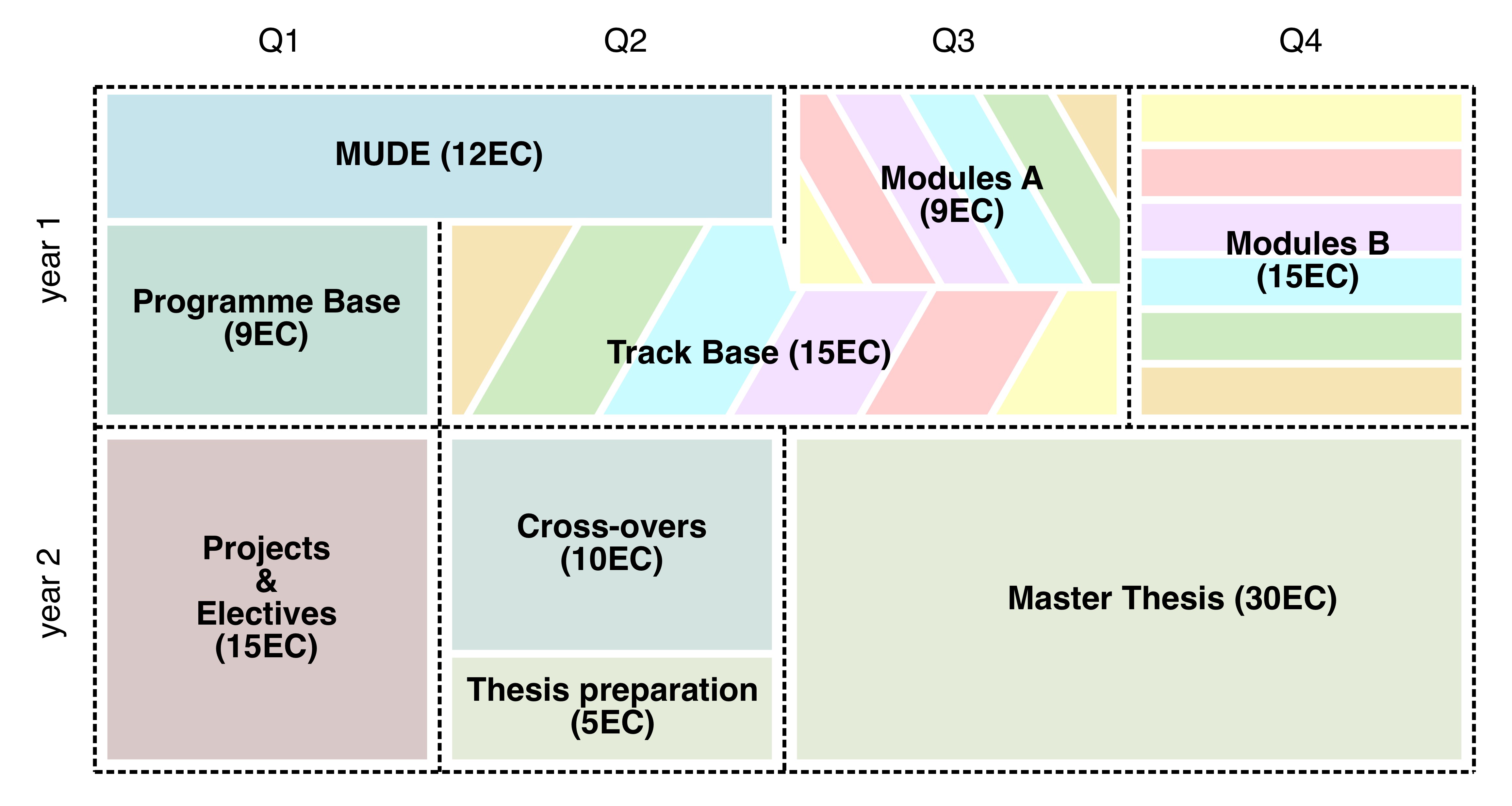Programme
Introduction to the curriculum
The master Civil Engineering is a two year MSc programme. The first part of year one is fixed and identical for all students. This compulsory part consists of the faculty base module, MUDE (12 EC) and the programme base module (9 EC). After this compulsory part, you will choose one of the six master tracks (15 EC), that offer you more specialised knowledge in a particular field.
The second year offers even more flexibility and freedom of choice than the first year, providing possibilities to study abroad, do an internship or a multi- or interdisciplinary project in the Netherlands or abroad, follow an in-depth module and a cross-over module to eventually make a well-informed choice for a research topic for the thesis.

Year 1
Faculty Wide Module (MUDE)
The first year of the MSc Civil Engineering starts with the faculty module on Modelling, Uncertainty and Data for Engineers (MUDE). This module takes place in Q1 and Q2 and is shared with Applied Earth Sciences and Environmental Engineering master students.
In a typical week you will be introduced to new theory, practice it on your own through a series of exercises and work on real data sets and models together with teachers and classmates in a medium-sized classroom setting. At the end of each week you will apply these concepts in a project along with a group of fellow students. You will also have weekly coding assignments to build your programming skills in a way that will help you apply the methods learned in MUDE, as well as prepare you for your future MSc thesis work.
Programme Module
Parallel to this faculty wide module, the first semester includes a module specifically for all Civil Engineering students, focusing on advanced mechanics and interdisciplinary perspectives. It provides a solid basis for all six tracks of the programme, each of which offers a balanced combination of in-depth and broadly oriented knowledge and skills.
Tracks
The MUDE and the Programme Base module are compulsory for all Civil Engineering students. Specialisation within this field is acquired by choosing one of the six tracks included in the programme:
Year 2
In Q5, you choose between various projects and electives. You can opt for a Joint Interdisciplinary Project, an internship, a multidisciplinary project ( a project in collaboration with other faculties), or field work.
During Q6, you follow cross-over modules, 10 credit modules offered to master students of Civil Engineering, Applied Earth Sciences, and Environmental Engineering. In general, these modules may be of two kinds: a) methodological, which are oriented around common techniques and methods or b) topical, that are oriented around common topics of interest. Download the Cross-Over Brochure here to learn more. More in-depth information about each cross-over can also be found here.
In Q6 you will also start preparing for the thesis graduation project. This preparation unit consists of 5 ECTS and includes setting up the proposal, literature study, and research plan. The research, design and analysis phase of the thesis work is covered in Q7 and Q8, with a total weight of 30 ECTS.